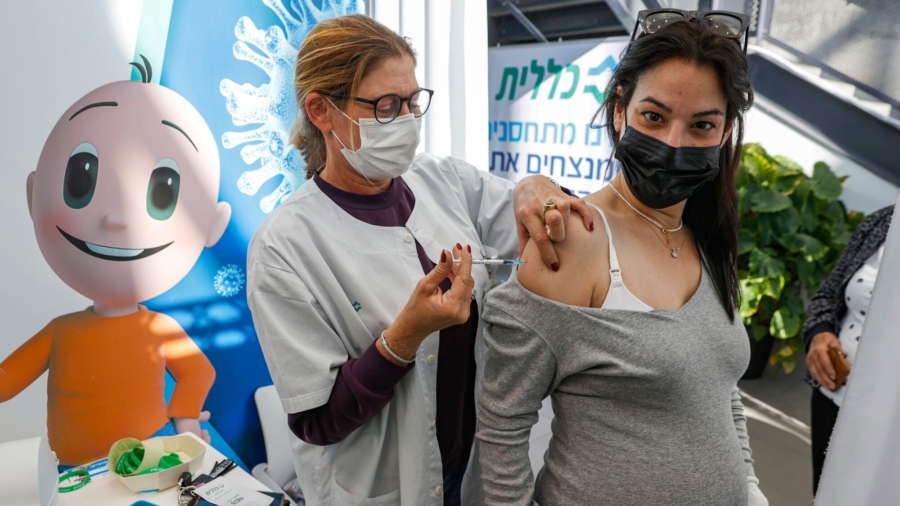Pregnant women infected with COVID-19 appear to be at greater risk of experiencing common pregnancy complications compared to women who are uninfected, according to a new study.
The National Institutes of Health (NIH) funded study included data from more than 13,000 pregnant women from 17 medical centers across the nation. Of those participants, nearly 2,400 tested positive for the CCP (Chinese Communist Party) virus.
Women infected with COVID-19, and who also experienced moderate to severe symptoms, were more likely to need a C-section (45.4 versus 32.4 percent), deliver preterm (26.9 versus 14.1 percent), die around the time of birth, or experience postpartum hemorrhage (also called PPH), the study found.
The women were also more likely to experience severe illness from infection besides COVID-19, develop high blood pressure, lose the pregnancy, or have the infant die as a newborn (3.5 versus 1.8 percent).
The researched data only included unvaccinated participants who delivered between March 1, 2020, and Dec. 31, 2020—before COVID-19 vaccines were widely available in the United States.
Complications during pregnancy, such as high blood pressure, PPH, or infection from any kind of disease, are of course possible in any pregnancy, regardless of COVID-19—but women who had tested positive to the virus during or immediately after their pregnancy are “at increased risk” to develop severe complications, said Dr. Torri Metz, an obstetrics and gynecology professor at the University of Utah who led the research.
Hypertensive disease of pregnancy, or maternal hypertensive disorder, affects 10 to 20 percent of pregnancies in the United States and is among the leading causes of severe maternal morbidity (SMM), which refers to health-impacting and life-threatening events that occur during hospitalization for childbirth.
The U.S. Centers for Disease Control and Prevention (CDC) recommended last year that pregnant women should get vaccinated against the CCP virus. The federal health agency said in an observational study published in the New England Journal of Medicine researchers found “no obvious safety signals among pregnant persons who received mRNA COVID-19 vaccines.”
A separate study published in JAMA on Monday reported that babies born to mothers who got the shot during pregnancy are more likely to have antibodies against COVID-19 in their blood.
Researchers reported on 28 six-month-old infants born to mothers who were vaccinated with two doses of an mRNA vaccine at 20 to 32 weeks gestation when a transfer of maternal antibodies to the fetus via the placenta is at its highest—and 12 babies of that age whose mothers were infected during that same time frame. The small study found detectable levels of immunoglobulin G (IgG), the most common antibody in blood, in 57 percent of babies born to vaccinated mothers, but in only 8 percent of the babies of infected, unvaccinated mothers.
It is not clear how high antibody levels need to be to protect against infection, and antibodies are not the body’s only defense mechanism. But “many interested parties from parents to pediatricians want to know how long maternal antibodies persist in infants after vaccination, and now we can provide some answers,” Dr. Andrea Edlow of Massachusetts General Hospital in Boston said in a statement.
Reuters contributed to this report.


